Handroll sushi is a popular type of sushi that is gaining popularity all over the world. It is a type of sushi that is rolled by hand, hence the name. Unlike other types of sushi, handroll sushi is cone-shaped and is made by wrapping rice, fish, and vegetables in a piece of nori seaweed.
Handroll sushi is a great option for those who are looking for a quick snack or a light meal. It is easy to make and can be customized to suit individual preferences. The ingredients used in handroll sushi are typically the same as those used in other types of sushi, but they are arranged differently to create a unique taste and texture.
Key Takeaways
- Handroll sushi is a cone-shaped sushi that is made by wrapping rice, fish, and vegetables in a piece of nori seaweed.
- Handroll sushi is a great option for a quick snack or light meal and can be customized to suit individual preferences.
- The ingredients used in handroll sushi are typically the same as those used in other types of sushi, but they are arranged differently to create a unique taste and texture.
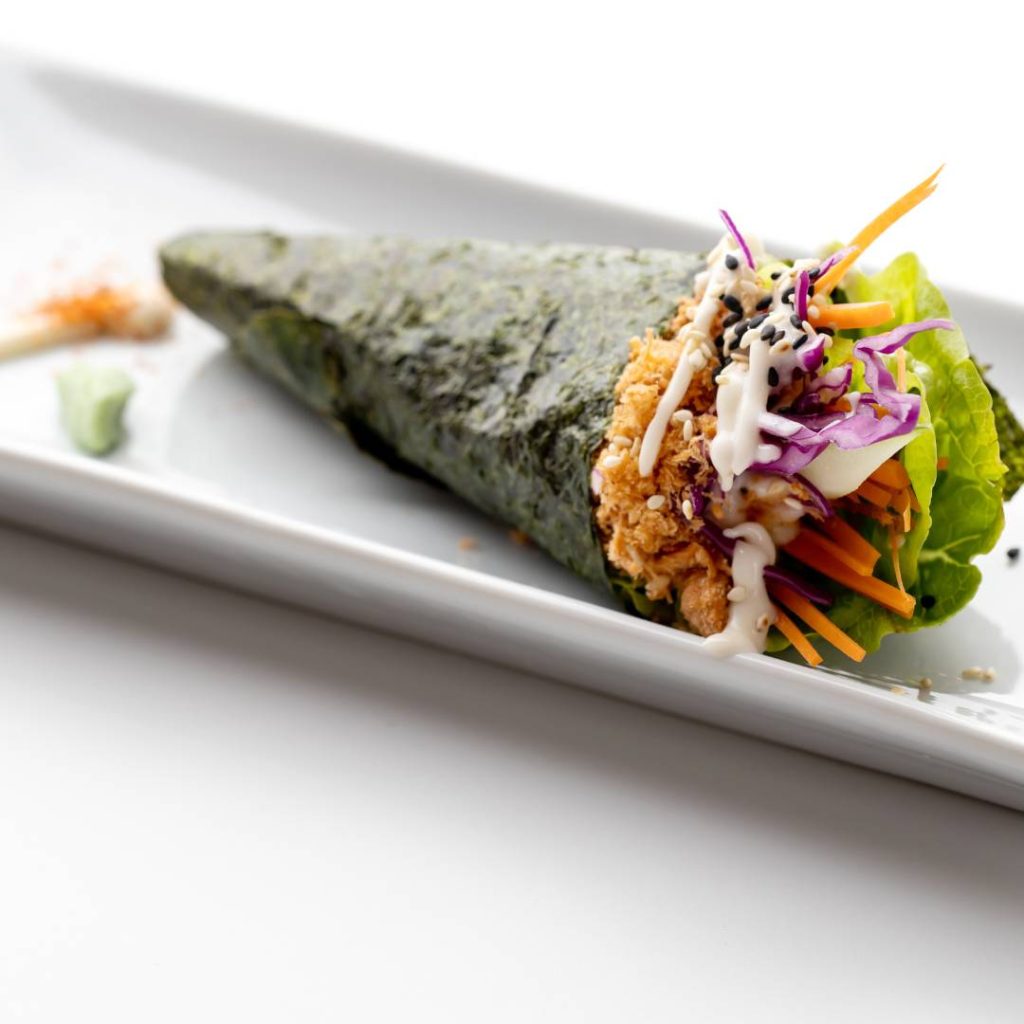
What is Handroll Sushi
Handroll sushi, also known as temaki, is a type of sushi that is rolled into a cone shape and is meant to be eaten with the hands. The word “temaki” literally means “hand roll” in Japanese, which is where the term handroll sushi comes from.
Unlike other types of sushi, such as maki rolls, which are cut into bite-sized pieces, handroll sushi is meant to be eaten in one or two bites. This makes it a popular choice for people who are on the go or who want a quick and easy snack.
To make handroll sushi, a sheet of nori seaweed is wrapped around a small amount of sushi rice and a variety of fillings, such as raw fish, vegetables, or crab meat. The fillings are then rolled into a cone shape and served with soy sauce and wasabi on the side.
One of the advantages of handroll sushi is that it allows for a more customizable sushi experience. Since each handroll is made to order, customers can choose their fillings and create a unique combination of flavors.
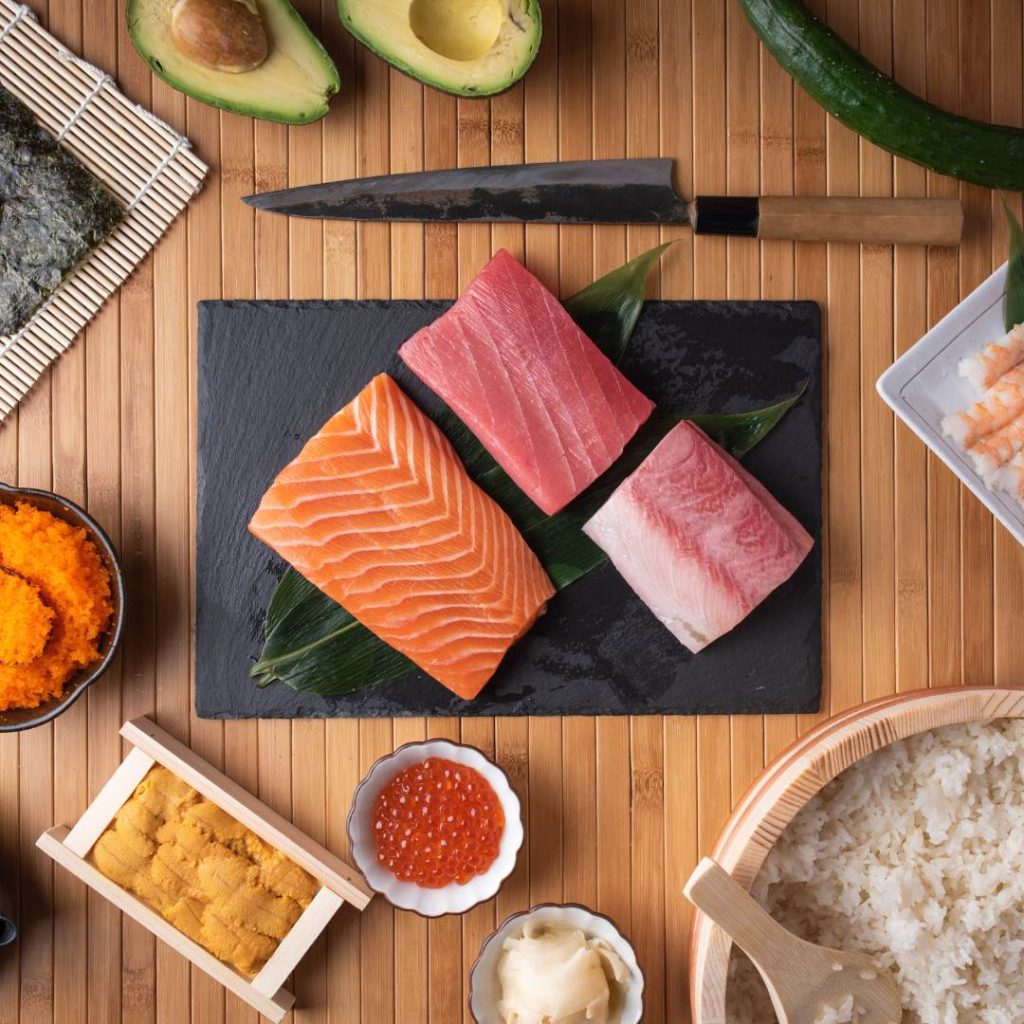
Ingredients of Handroll Sushi
Here are the main ingredients and optional extras that are typically used to make handroll sushi.
Main Ingredients
Rice
The foundation of handroll sushi is sushi rice. Sushi rice is a short-grain rice that is cooked with vinegar, sugar, and salt. The vinegar gives the rice a slightly sweet and tangy flavor and helps to preserve the rice.
Seaweed
Seaweed, also known as nori, is used to wrap sushi rice and fillings. Nori sheets are typically cut in half and then folded into a cone shape to create the handroll. Nori is rich in vitamins and minerals, including iodine, calcium, and iron.
Fish and Seafood
Fish and seafood are commonly used in handroll sushi. Some popular options include tuna, salmon, shrimp, and uni (sea urchin). When using raw fish, it is important to ensure that it is fresh and has been properly handled and prepared.
Vegetables
Vegetables are an essential component of handroll sushi. Some popular options include avocado, cucumber, carrot, and lettuce. Vegetables add crunch and texture to the handroll and also provide a healthy dose of vitamins and minerals.
Sushi Rice
Sushi rice is the base of handroll sushi and is prepared with vinegar, sugar, and salt. It is important to use high-quality sushi rice and to properly season it to achieve the perfect balance of sweetness and acidity.
Optional Extras
Pickled Ginger
Pickled ginger, also known as gari, is a popular condiment that is often served with handroll sushi. It is made by pickling thin slices of ginger in vinegar and sugar. Pickled ginger is used to cleanse the palate between bites of sushi.
Wasabi
Wasabi is a pungent green paste that is made from the root of the wasabi plant. It is often served with handroll sushi and is used to add heat and flavor to the dish. Wasabi can be quite spicy, so it is important to use it sparingly.
Mango
Mango is a sweet and juicy fruit that is sometimes used in handroll sushi. It pairs well with seafood and adds a tropical twist to the dish.
Chicken Teriyaki
Chicken teriyaki is a popular protein option for handroll sushi. It is typically marinated in a sweet and savory sauce and then grilled or pan-fried until it is cooked through.
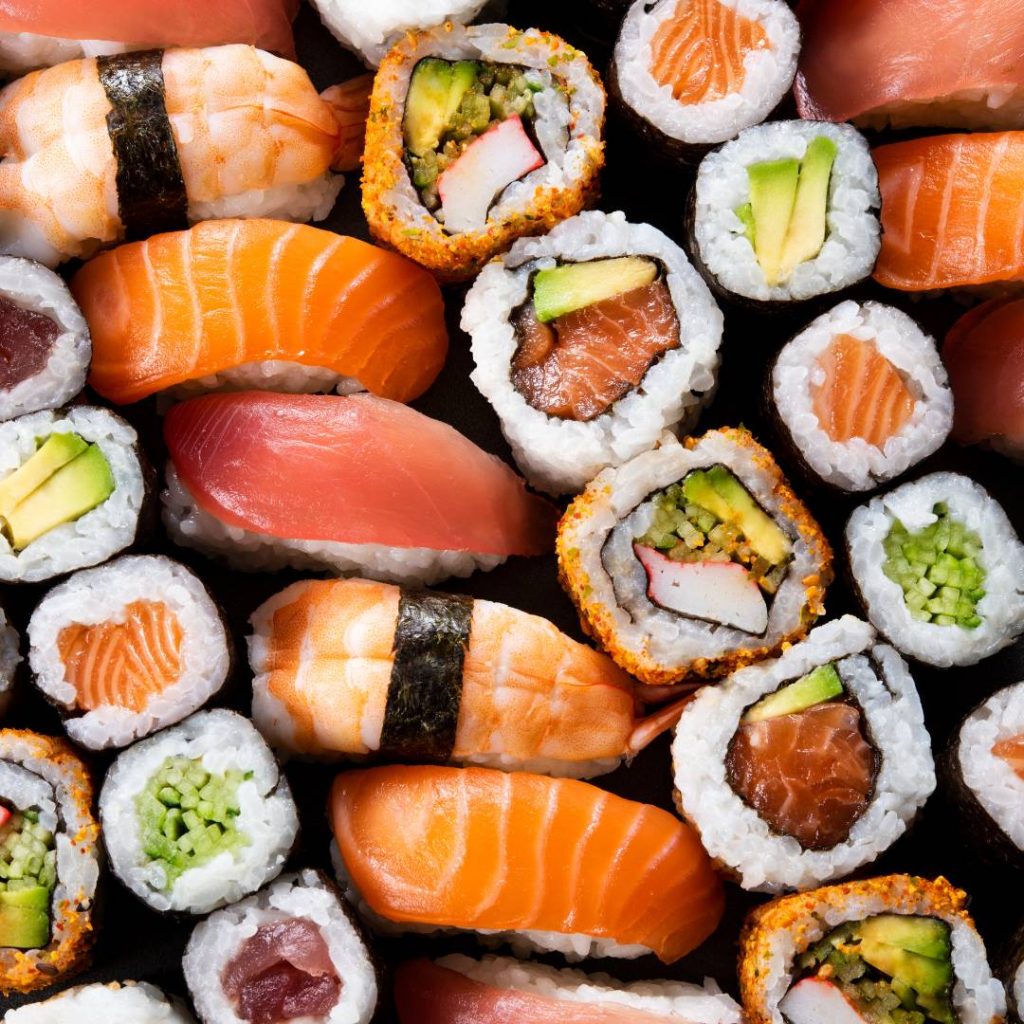
Different Types of Sushi Rolls
Sushi is a popular Japanese dish that has become a staple in many countries around the world. There are different types of sushi rolls, each with its unique characteristics and flavors. In this section, we’ll explore some of the most common types of sushi rolls.
Maki Rolls
Maki rolls are the most popular type of sushi roll. They are made by wrapping sushi rice and various ingredients in a sheet of nori seaweed. The roll is then sliced into bite-sized pieces. Maki rolls can be filled with a variety of ingredients, including fish, vegetables, and other seafood.
Futomaki
Futomaki is a type of maki roll that is larger than regular maki rolls. It is typically made with a variety of fillings, including tamagoyaki (sweet omelet), cucumber, and pickled daikon radish. Futomaki is often sliced into thicker pieces than regular maki rolls.
Hosomaki
Hosomaki is a type of maki roll that is smaller in size than regular maki rolls. It is typically made with only one filling, such as tuna or cucumber. Hosomaki is often served as an appetizer or as part of a sushi platter.
Nigiri Sushi
Nigiri sushi is a type of sushi that is made by placing a small ball of sushi rice in the palm and topping it with a slice of raw fish or other seafood. Nigiri sushi is often served with a small amount of wasabi and soy sauce.
Makizushi
Makizushi is a sushi roll similar to maki rolls, but the nori seaweed is on the inside and the rice is on the outside. Makizushi can be filled with a variety of ingredients, including fish, vegetables, and other seafood.
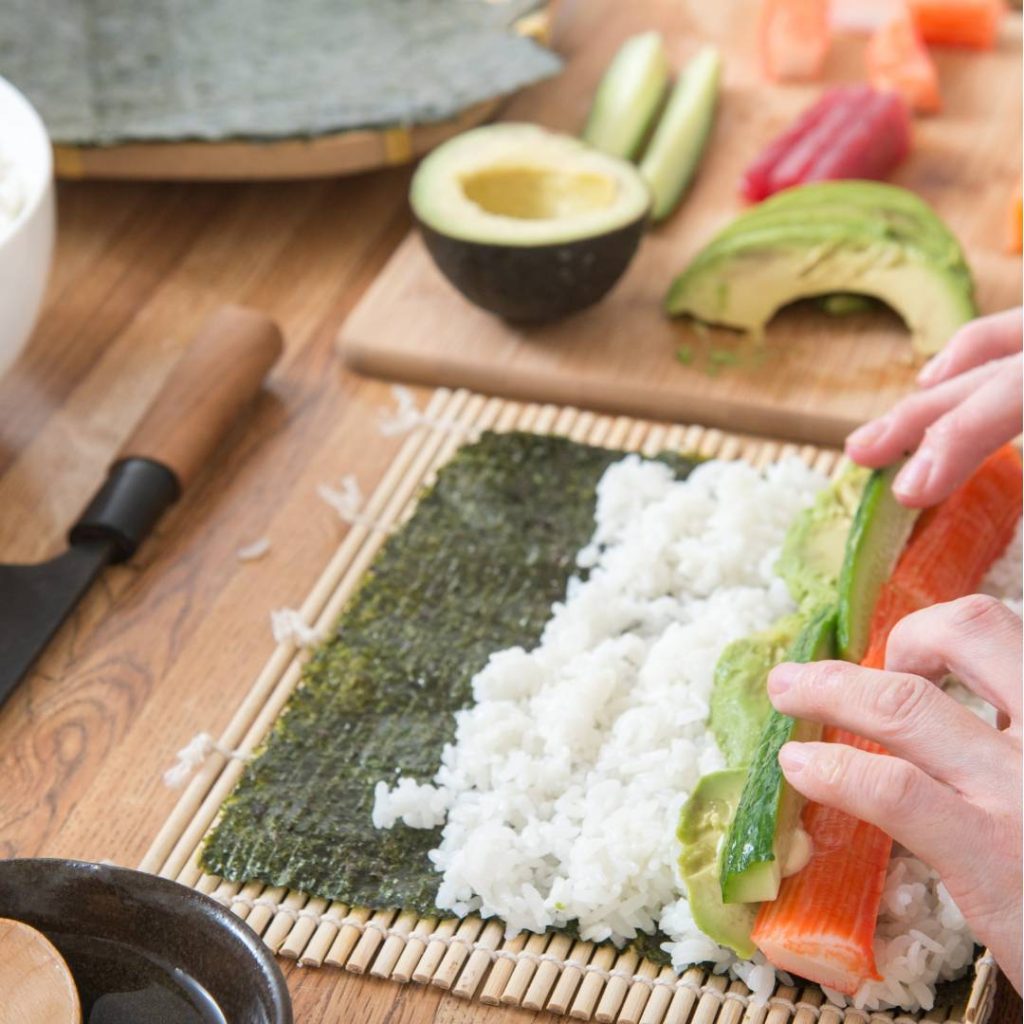
Making Handroll Sushi at Home
Making handroll sushi, also known as temaki sushi, is a fun and easy way to enjoy Japanese home cooking. With a few simple ingredients and tools, you can create your delicious sushi rolls right in your kitchen.
Preparation Time
Preparation time for handroll sushi is minimal, as all you need to do is cook the sushi rice and prepare your fillings. Depending on the number of fillings you choose, preparation time can range from 10 to 20 minutes.
Cooking Time
Cooking time for sushi rice is approximately 20 minutes, but it can vary depending on the type of rice you use. It is important to follow the instructions on the package to ensure the rice is cooked properly.
Servings
One cup of uncooked sushi rice can make approximately 4 to 6 handroll sushi servings. However, this can vary depending on the amount of rice and fillings used in each roll.
To make handroll sushi at home, you will need a few essential tools such as a bamboo rolling mat and a sharp knife. Once you have these tools, follow these simple steps:
- Lay a sheet of nori seaweed on the bamboo rolling mat with the shiny side facing down.
- Spread a thin layer of sushi rice over the nori, leaving a small border around the edges.
- Add your desired fillings in a line down the center of the rice.
- Roll the nori and rice into a cylindrical shape, using the bamboo mat to help guide the roll.
- Use a sharp knife to slice the roll into individual servings.
Handroll sushi is known for its cone shape, which is created by rolling the sushi by hand. This shape makes it easy to hold and eat, making it a popular choice for sushi lovers. With a little practice, you can become a pro at making handroll sushi at home.
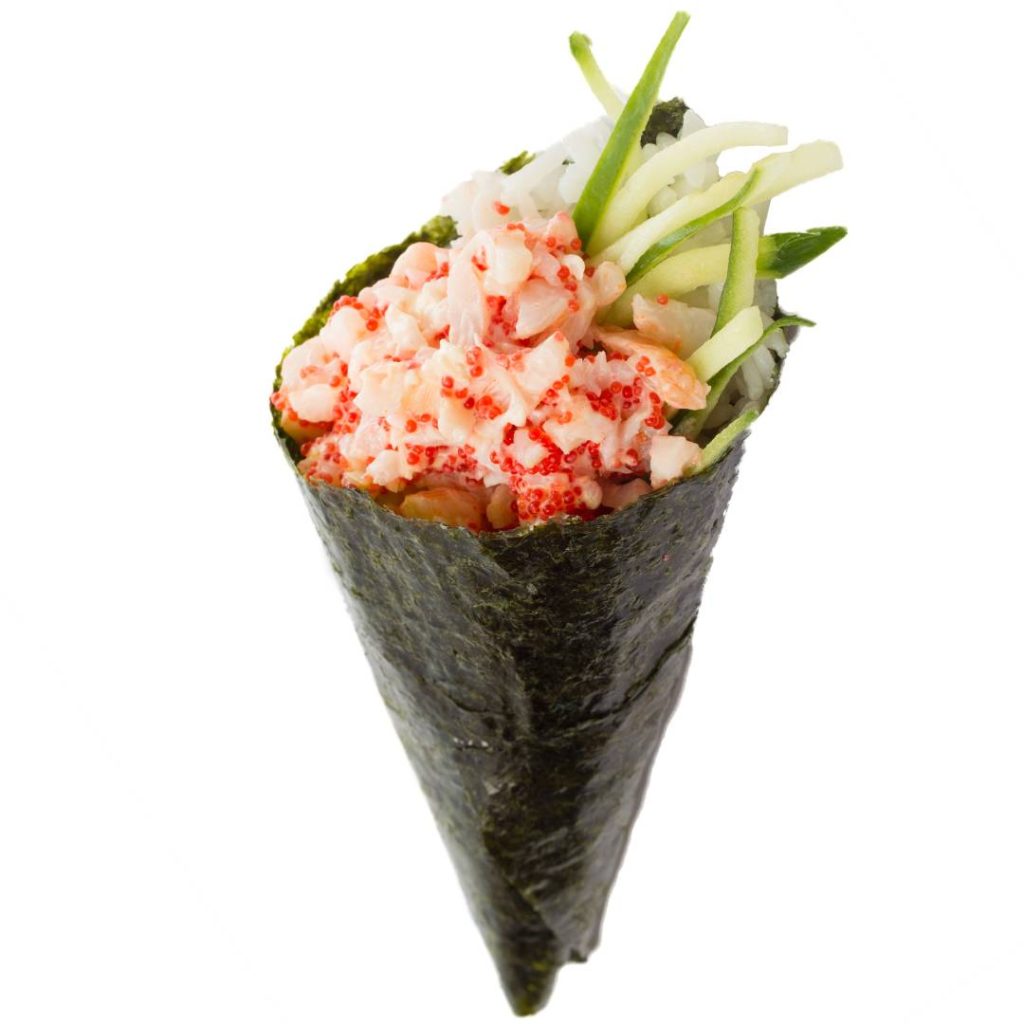
Eating Handroll Sushi
When eating handroll sushi, it is important to note that it is meant to be eaten with your hands rather than chopsticks. This is because the shape of the sushi makes it difficult to pick up with chopsticks.
To eat handroll sushi, hold it with one hand and use the other hand to gently push the filling toward the end of the cone. Take a bite from the end of the cone and continue to eat it from the top down.
When it comes to the filling of handroll sushi, it typically includes raw fish, vegetables, and rice. The filling is tightly packed into the cone-shaped roll, making it easy to eat without the filling falling out.
Where to Find Handroll Sushi
If you’re looking for a place to enjoy some delicious handroll sushi, there are several great options to choose from in Los Angeles. Here are some important details to keep in mind when searching for the perfect spot.
Hours of Operation
It’s important to know when your favorite sushi spot is open. Most restaurants are closed on Mondays, but check the specific restaurant’s website or Yelp page for their hours of operation. Some places may be open for lunch and dinner, while others only serve dinner. Be sure to check the hours before you go to avoid disappointment.
Location
Handroll sushi can be found in various neighborhoods in Los Angeles, including Studio City and downtown LA. Some restaurants may have multiple locations, so check for the one closest to you. Most restaurants are easily accessible by car or public transportation.
Reservations
While some handroll sushi restaurants may accept reservations, others operate on a first-come, first-served basis. If you’re planning to visit during peak hours, it’s a good idea to call ahead to check availability or arrive early to secure your spot. Some places may also offer outdoor seating, delivery, or takeout options for those who prefer to enjoy their sushi at home.



Konnichiwa! (Hello!) I'm Pat Tokuyama, a Japanese tofu cookbook author, who travels for music, food, and adventure. If you like Japanese tea, checkout some of the newestorganic japanese tea, matcha bowls and noren and more!
** Curious about the Plant Based Japanese Cooking Club? ** Learn more here!
Forms of Payment
Most handroll sushi restaurants in Los Angeles accept credit cards, but it’s always a good idea to double-check before you go. Some places may only accept certain types of credit cards or cash, so be sure to have the appropriate payment method on hand.
Overall, Los Angeles is home to a variety of excellent handroll sushi restaurants. Whether you’re looking for a casual spot to grab a quick bite or a more upscale dining experience, there’s something for everyone. Just be sure to check the hours, location, and reservation policies before you go to ensure a smooth and enjoyable dining experience.


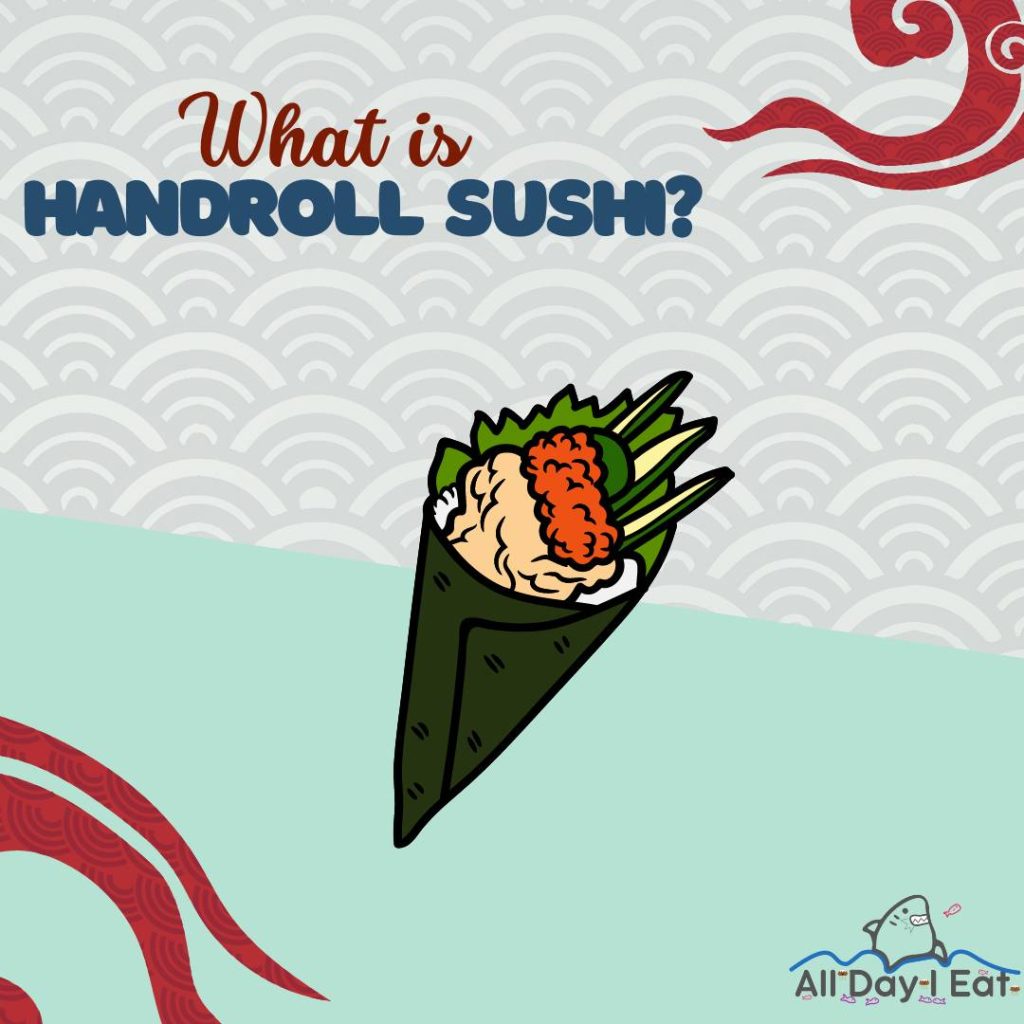




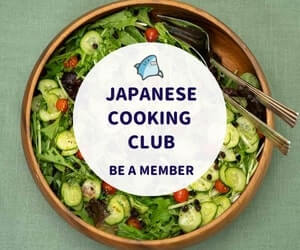
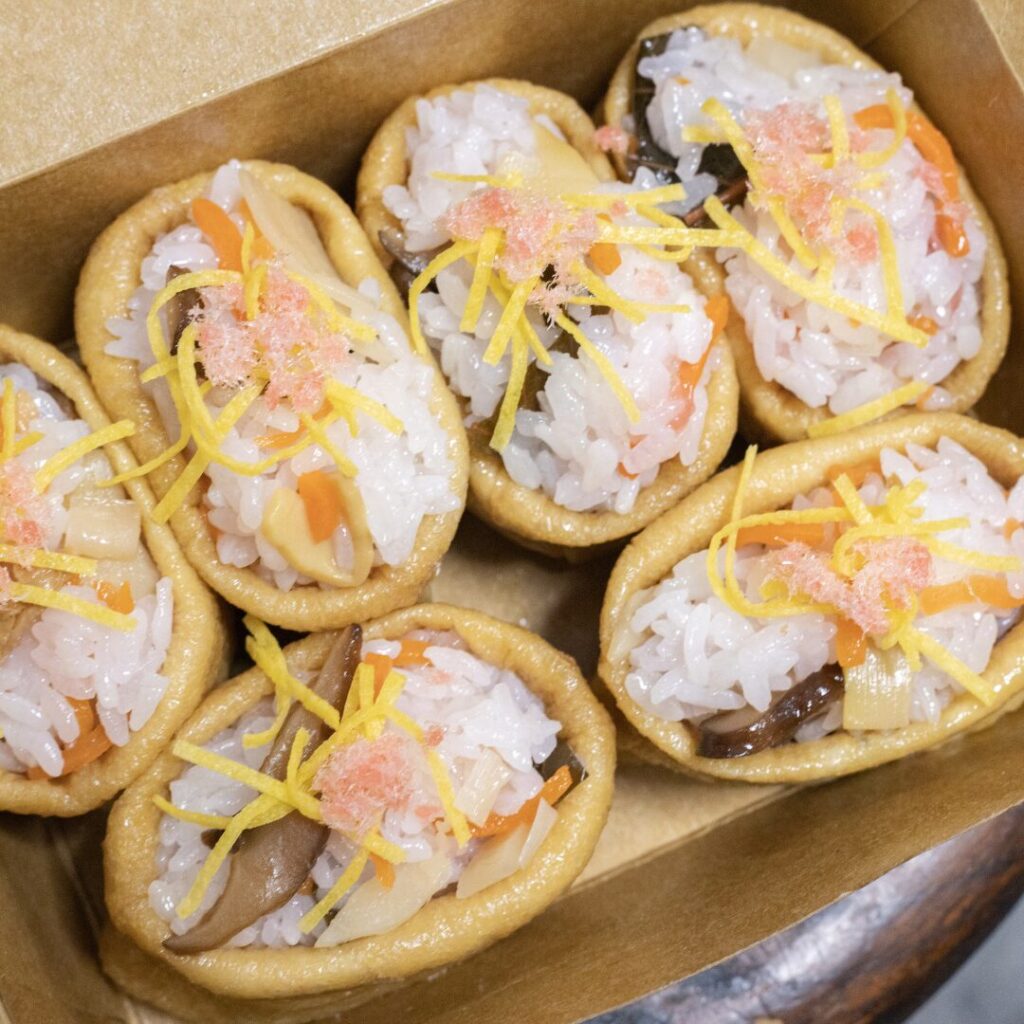
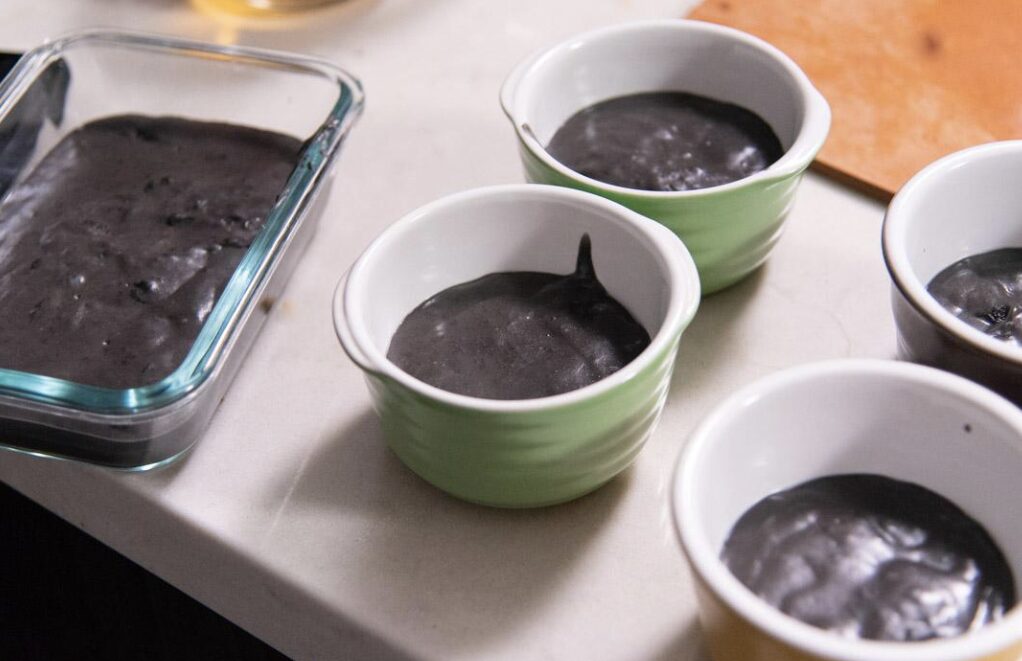
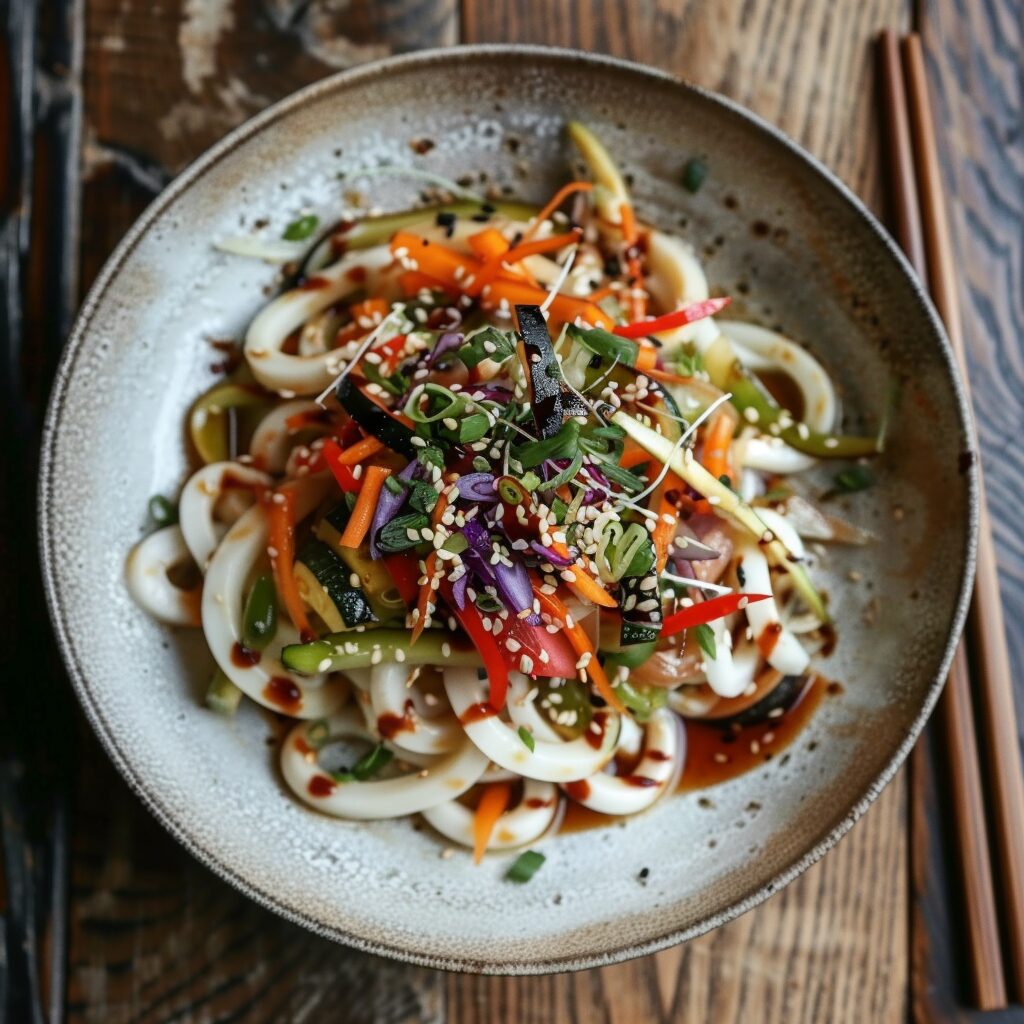
Konnichiwa! (Hello!) I'm Pat Tokuyama, a Japanese tofu cookbook author, who travels for music, food, and adventure. If you like Japanese tea, checkout some of the newestorganic japanese tea, matcha bowls and noren and more!
** Curious about the Plant Based Japanese Cooking Club? ** Learn more here!